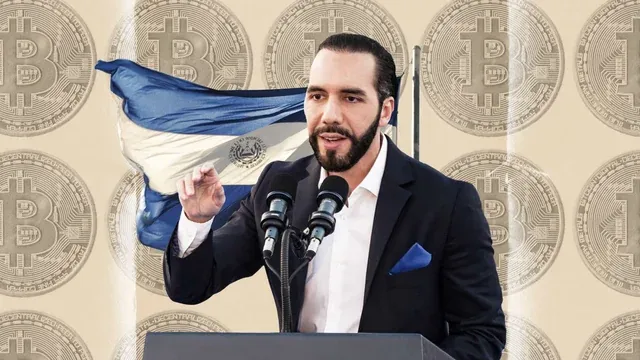El Salvador To Shutdown Chivo Wallet, Adjusts Bitcoin Strategy in IMF Agreement

El Salvador's bold venture into the world of Bitcoin has hit a significant roadblock with the recent $1.4 billion loan agreement from the International Monetary Fund (IMF). This deal, while a financial lifeline, comes with strings attached that could alter the trajectory of the country's crypto experiment.
Under the terms of this agreement, El Salvador is set to dial back its aggressive push for Bitcoin adoption. The government will now treat Bitcoin acceptance as optional for the private sector, moving away from the mandatory use that was once in place. Furthermore, public sector involvement in cryptocurrency activities will be curtailed, signaling a retreat from the state-sponsored enthusiasm that marked the early days of this policy.
Part of these concessions includes the plan to discontinue the Chivo wallet, the government-issued digital wallet launched in 2021 to facilitate Bitcoin transactions within El Salvador. This move underscores the country's shift in cryptocurrency policy, acknowledging the challenges and limited adoption rates the wallet has encountered.
This shift in policy is part of a broader reform agenda aimed at aligning El Salvador's financial practices with international norms. The agreement seeks to fortify anti-corruption measures and enhance banking regulations, ensuring that the country's financial system becomes more robust and transparent. According to IMF officials Luis Cubeddu and Raphael Espinoza, this deal is designed to mitigate the risks associated with El Salvador's Bitcoin project, aligning it more closely with the IMF's conservative financial policies.
Economic Implications
The ramifications of this deal extend beyond just cryptocurrency. To access the funds, El Salvador must commit to significant economic reforms, including improving its primary balance by approximately 3.5% of GDP over the next three years. This is crucial for managing the country's debt, which reached a concerning 85% of GDP in 2024. Additionally, even with these changes, the government has decided that taxes will continue to be settled in U.S. dollars, preserving a level of fiscal stability amidst the crypto volatility.
The agreement with the IMF could potentially unlock further funding from development banks, pushing the total financial support package to over $3.5 billion. However, this comes with the condition of implementing these reforms, with the IMF's executive board expected to review the program for approval by early February.
When President Nayib Bukele initially declared Bitcoin as legal tender in 2021, it was met with a mix of excitement and skepticism. Bitcoin enthusiasts celebrated the move, seeing it as a pioneering step towards global cryptocurrency adoption. However, critics were quick to point out the potential pitfalls, including environmental concerns and credit downgrades.
The World Bank had already declined to assist with the implementation of El Salvador's Bitcoin Law, citing these environmental issues, and the IMF has been consistently vocal about its reservations. By early 2022, the IMF recommended that El Salvador reconsider its legal tender status for Bitcoin, a position it has maintained into late 2024.
The Chivo wallet initiative, which initially attracted millions with a $30 Bitcoin incentive, has not sustained the momentum hoped for. President Bukele himself acknowledged in August that both the wallet program and broader Bitcoin adoption had not met expectations.
This deal with the IMF marks a pragmatic pivot for El Salvador, potentially tempering its cryptocurrency ambitions in favor of broader economic stability and international credibility. As the country navigates these new financial waters, the global community watches closely, pondering what this means for the future of Bitcoin in national economies.

